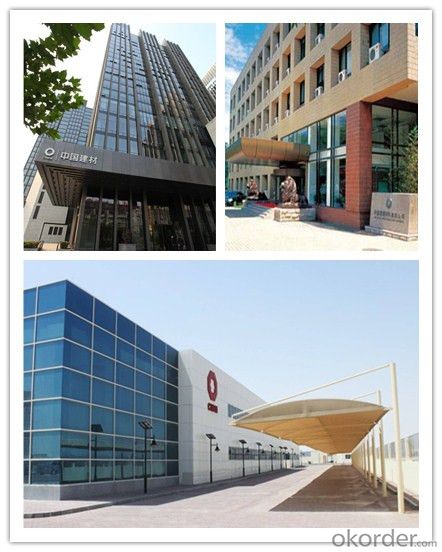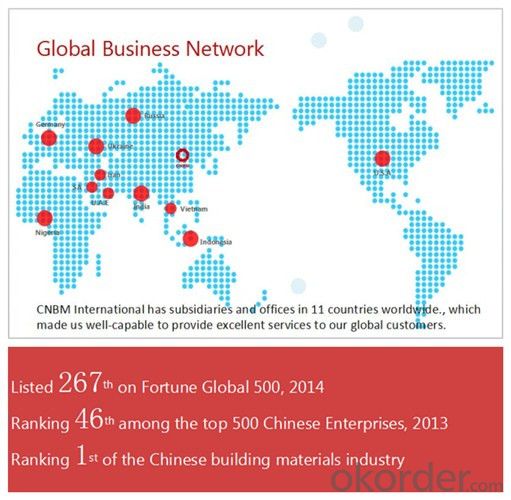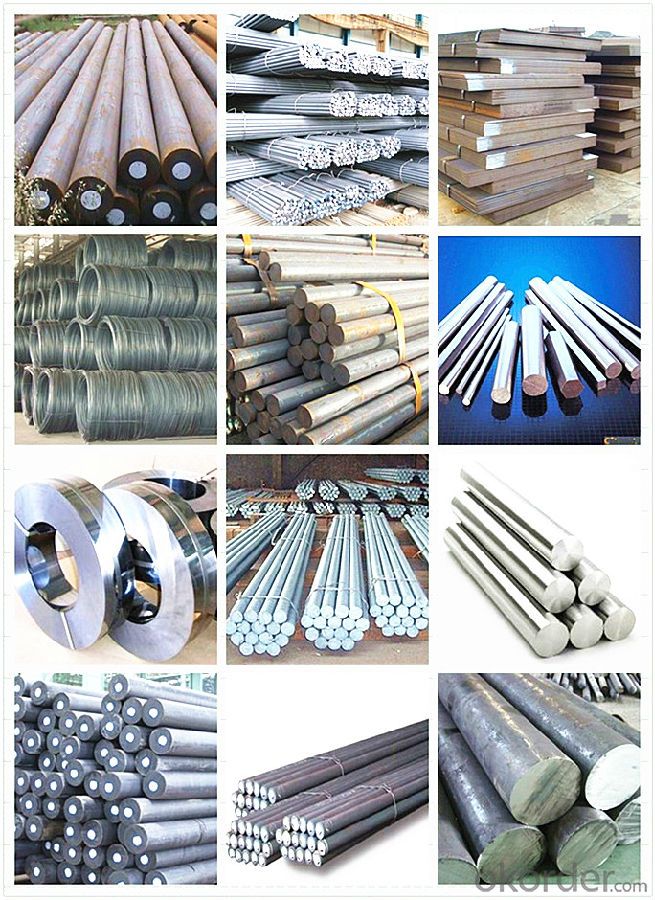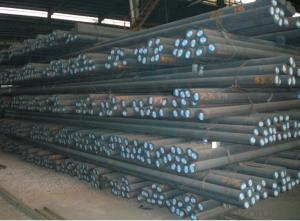Manufacture Forged Steel Round Bar S45C(1045)
- Loading Port:
- Qingdao
- Payment Terms:
- TT OR LC
- Min Order Qty:
- 5 m.t.
- Supply Capability:
- 100000 m.t./month
OKorder Service Pledge
Quality Product, Order Online Tracking, Timely Delivery
OKorder Financial Service
Credit Rating, Credit Services, Credit Purchasing
You Might Also Like
Item specifice
Type:
Carbon Steel,Spring Steel,Bearing Steel,Gear Steel,Deformed Steel,Stainless Steel,Alloy Steel
Shape:
Steel Coil,Steel Sheet,Steel Wire Rod,Steel Flat Bar,Steel Square Bar,Steel Angle,Steel Round Bar,Steel Billets
Technique:
Hot Rolled,Cold Rolled,Cold Drawn,ERW,Forged,Saw,Extruded,EFW,Spring
Surface Treatment:
Galvanized,Coated,Copper Coated,Color Coated,Oiled,Dry,Chromed Passivation,Polished,Bright,Black,PVDF Coated
Certification:
ISO,SGS,BV,IBR,RoHS,CE,API,BSI,UL
Thickness:
50mmm-800mm
Width:
50mmm-800mm
Length:
6-12m
Outer Diameter:
50mmm-800mm
Net Weight:
100kg
Packaging:
seaworthy packaging
Manufacture Forged Steel Round Bar S45C
Detailed Information of Manufacture Forged Steel Round Bar S45C
| Name | Steel Round Bar |
| Shape | Round Bar/Square Bar/Flat Bar/Plate/Wire |
| Standard | GB/ASTM/SAE/AISI/DIN/JIS/EN/BS |
| Surface Treatment: | Black/Peeling/Polished/Machined |
| Delivery Condition: | Hot Rolled or Forged/Peeled or Black Surface |
| Test | SGS/UT 100% Elements Testing |
| Certificate: | ISO/Mill Certificate |
| Service: | 24 hours online service / |
| more than 20 years trading and manufacture | |
| Quality Assurance: | the third party inspection, such as SGS, BV, TUV…etc. is acceptable |
| Packaging Details: | Seaworthy Packaging or as per customer's packing instruction |
Product Overviews of Manufacture Forged Steel Round Bar S45C
| Product Name | Typical Grades | Diameter(mm) | Standard Adopted |
| Carbon Steel | 20 (1020/S20C/C22) | ||
| 40 (1040/S40C/C40) | Ø16-Ø300 | ||
| 45 (1045/S45C/C45) | |||
| Bearing Steel | GCr9 (51100/SUJ1) | ||
| GCr15 (52100/SUJ2/100Gr6) | Ø12-Ø250 | ||
| GCr9SiMn (A485-Gr.1/SUJ3) | GB/SAE/ | ||
| Cr-Mo Steel | 20Cr (5120/SCr420H/20Cr4) | JIS/DIN | |
| 40Cr (5140/SCr440/41Cr4) | Ø12-Ø250 | ||
| 42CrMo(4140/SCM440/42CrMo4) | |||
| Gear Steel | 20CrNiMo | ||
| 20CrMn(5115/SMnC420/20MnCr5) | Ø16-Ø600 | ||
| 20CrNiMo(8620/SNCM220/20CrMiMo2) |
Company Introduction of Manufacture Forged Steel Round Bar S45C
CNBM International Corporation is the most import and export platform of CNBM group(China National Building Material Group Corporation) ,which is a state-owned enterprise, ranked in 270th of Fortune Global 500 in 2015.
With its advantages, CNBM International are mainly concentrate on Cement, Glass, Iron and Steel, Ceramics industries and devotes herself for supplying high quality series of refractories as well as technical consultancies and logistics solution.


| After-sale service | l CNBM provides the services and support you need for every step of our cooperation. We’re the business partners you can trust; you can relax and get on with doing business. |
| l For any problem, please kindly contact us at any your convenient time, we’ll reply you in our first priority within 24 hours | |
| Advantages | l Industry experience over 20 years. |
| l Shipment of goods -More than 70 countries worldwide. | |
| l The most convenient transport and prompt delivery. | |
| l Competitive price with best service. | |
| l High technical production line with top quality products. | |
| l High reputation based on best quality products. | |
Packaging & Delivery of Manufacture Forged Steel Round Bar S45C
| Packaging Detail | Sea worthy packing /as per customer's packing instruction |
| Delivery Detail | 15 ~ 40 days after receiving the deposit |
Products Show

FAQ:
| Are you a trading company or manufacturer? | Manufacturer |
| What’s the MOQ? | 1000m2 |
| What’s your delivery time? | 15-20 days after downpayment received |
| Do you Accept OEM service? | Yes |
| what’s your delivery terms? | FOB/CFR/CIF |
| What's the Payment Terms? | 30% as deposit,70% before shipment by T/T |
| Western Union acceptable for small amount. | |
| L/C acceptable for large amount. | |
| Scrow ,Paybal,Alipay are also ok | |
| Why choose us? | Chose happens because of quality, then price, We can give you both. Additionally, we can also offer professional products inquiry, products knowledge train (for agents), smooth goods delivery, excellent customer solution proposals. |
| What's your available port of Shipment? | Main Port, China |
| What’s your featured services? | Our service formula: good quality+ good price+ good service=customer's trust |
| Where are your Market? | Covering more than 160 countries in the world |
- Q:What are the main characteristics of creep-resistant steel forgings?
- Creep-resistant steel forgings possess a range of essential qualities that render them suitable for applications involving high temperatures and prolonged stress and heat exposure. To begin with, these forgings are renowned for their exceptional resistance to creep deformation. Creep refers to the gradual deformation that occurs under constant load and elevated temperatures over an extended period. These forgings are specifically designed to withstand such deformation, retaining their shape and structural integrity. Consequently, they are ideal for use in environments with high temperatures, such as turbine blades, boiler components, and other similar settings. Another crucial characteristic of creep-resistant steel forgings is their impressive strength. These forgings are manufactured using alloying elements like chromium, molybdenum, and vanadium, which enhance their tensile strength. As a result, they exhibit excellent resistance to deformation and fracture under high-stress conditions. This strength is essential for ensuring that the forgings can endure the demands of various applications and perform reliably over time. Furthermore, creep-resistant steel forgings demonstrate good resistance to oxidation and corrosion. The presence of alloying elements creates a protective layer on the surface, safeguarding against oxidation and corrosion at elevated temperatures. This resistance is vital in preventing the degradation of the material and maintaining its mechanical properties, even in harsh environments. Moreover, creep-resistant steel forgings offer outstanding thermal stability. They can endure extreme temperature fluctuations without significant dimensional changes or loss of mechanical strength. This stability is particularly critical in applications that involve rapid heating and cooling cycles, ensuring that the forgings can sustain their performance under challenging conditions. Additionally, creep-resistant steel forgings possess excellent fatigue resistance. Fatigue refers to the weakening of a material resulting from cyclic loading, which is particularly relevant in high-temperature applications due to the combination of stress and heat. These forgings are designed to withstand cyclic loading and retain their mechanical properties, thus reducing the risk of fatigue failure and enhancing the overall reliability of the component. In conclusion, the primary characteristics of creep-resistant steel forgings encompass resistance to creep deformation, high strength, good oxidation and corrosion resistance, thermal stability, and excellent fatigue resistance. These qualities establish creep-resistant steel forgings as a reliable and durable choice for applications requiring resistance to high temperatures, stress, and prolonged exposure to challenging environments.
- Q:What are the future prospects for the special steel industry?
- The future prospects for the special steel industry are promising. With advancements in technology, increasing demand for high-performance materials in various sectors such as automotive, aerospace, and construction, the special steel industry is expected to witness steady growth. Additionally, the shift towards sustainable and lightweight materials in industries like renewable energy and electric vehicles presents new opportunities for the special steel industry. However, the industry may face challenges in terms of environmental regulations and competition from alternative materials. Overall, the future outlook for the special steel industry looks favorable, driven by technological advancements and evolving market demands.
- Q:What are the different surface finishing techniques used for special steel?
- Some of the different surface finishing techniques used for special steel include electroplating, powder coating, galvanizing, passivation, and mirror polishing.
- Q:How does special steel contribute to the industrial equipment industry?
- Special steel contributes to the industrial equipment industry by offering superior strength, durability, and resistance to corrosion and wear. It allows manufacturers to produce high-quality components and machinery that can withstand extreme conditions, resulting in longer equipment lifespan and improved performance. Additionally, special steel's versatility enables the production of complex shapes and sizes, leading to enhanced design possibilities and increased efficiency in various industrial applications.
- Q:How does special steel contribute to the automotive sector?
- Special steel plays a significant role in the automotive sector by contributing to the manufacturing and performance of various automotive components. It offers several benefits that enhance the overall quality, durability, and safety of vehicles. Firstly, special steel is known for its exceptional strength and toughness. This makes it ideal for producing critical automotive parts such as engine components, chassis, suspension systems, and safety reinforcements. These components require high strength to withstand the stresses and strains experienced during vehicle operation, ensuring the safety of passengers. Furthermore, special steel provides excellent resistance to wear, corrosion, and high-temperature environments. This makes it suitable for manufacturing parts like gears, bearings, shafts, and exhaust systems, which are exposed to harsh conditions. The use of special steel in these components improves their lifespan, reliability, and overall performance, reducing maintenance and replacement costs for vehicle owners. Moreover, special steel enables the lightweighting of vehicles. Automakers are constantly striving to reduce the weight of vehicles to enhance fuel efficiency and reduce emissions. Special steel alloys, such as high-strength low-alloy (HSLA) steel, offer a unique combination of strength and lightweight properties, allowing manufacturers to design lighter and more fuel-efficient vehicles without compromising on safety or performance. In addition to its mechanical properties, special steel also contributes to the automotive sector through its versatility in manufacturing processes. It can be easily formed, welded, and machined, enabling complex shapes and designs for automotive parts. This flexibility enhances the design possibilities and allows for innovative solutions to meet the evolving needs of the automotive industry. Overall, special steel plays a crucial role in the automotive sector by providing strength, durability, and lightweight properties to various components. Its use in critical parts ensures the safety of vehicles and passengers, while its resistance to wear and corrosion improves the longevity and performance of automotive systems. With the constant drive for fuel efficiency and innovation in the automotive industry, special steel continues to be an essential material in shaping the future of automobiles.
- Q:How does special steel contribute to the chemical industry?
- Special steel plays a crucial role in the chemical industry by offering exceptional corrosion resistance and high temperature resistance properties. It is used to manufacture various equipment such as storage tanks, pipelines, valves, and reactors, which are essential for handling corrosive chemicals and operating under extreme conditions. Special steel ensures the integrity and safety of these structures, preventing leaks and maintaining product quality, thus enabling efficient and reliable chemical processes.
- Q:What are the different methods for nitriding special steel?
- There are several methods for nitriding special steel, including gas nitriding, salt bath nitriding, plasma nitriding, and ion nitriding.
- Q:How is corrosion-resistant alloy steel used in the production of chemical processing equipment?
- Corrosion-resistant alloy steel is used in the production of chemical processing equipment due to its ability to withstand the harsh chemical environments and resist corrosion. It is commonly used to manufacture pipes, tanks, valves, and other components that come into contact with corrosive substances. This type of steel helps ensure the longevity and reliability of the equipment, preventing leaks, contamination, and costly repairs or replacements.
- Q:How does special steel contribute to improving product reliability in critical applications?
- Special steel plays a crucial role in enhancing product reliability in critical applications due to its unique properties. Its exceptional strength, durability, and resistance to corrosion, heat, and wear enable it to withstand extreme conditions and stresses. This reliability ensures that critical applications, such as aerospace, automotive, and medical equipment, operate efficiently and safely. Additionally, special steel's high precision manufacturing capabilities allow for the production of complex components, further enhancing the performance and reliability of the final product.
- Q:What are the different joining methods for special steel?
- There are several different joining methods for special steel, including welding, brazing, soldering, and mechanical fastening. Each method has its own advantages and considerations depending on the specific requirements of the application. Welding is commonly used for joining thick sections of steel and offers high strength and durability. Brazing and soldering involve melting a filler material to bond the steel pieces together at lower temperatures, making them suitable for joining thin or delicate components. Mechanical fastening methods, such as bolts, nuts, and rivets, provide a non-permanent joining solution and are often used in applications that require disassembly or reassembly.
1. Manufacturer Overview |
|
|---|---|
| Location | |
| Year Established | |
| Annual Output Value | |
| Main Markets | |
| Company Certifications | |
2. Manufacturer Certificates |
|
|---|---|
| a) Certification Name | |
| Range | |
| Reference | |
| Validity Period | |
3. Manufacturer Capability |
|
|---|---|
| a)Trade Capacity | |
| Nearest Port | |
| Export Percentage | |
| No.of Employees in Trade Department | |
| Language Spoken: | |
| b)Factory Information | |
| Factory Size: | |
| No. of Production Lines | |
| Contract Manufacturing | |
| Product Price Range | |
Send your message to us
Manufacture Forged Steel Round Bar S45C(1045)
- Loading Port:
- Qingdao
- Payment Terms:
- TT OR LC
- Min Order Qty:
- 5 m.t.
- Supply Capability:
- 100000 m.t./month
OKorder Service Pledge
Quality Product, Order Online Tracking, Timely Delivery
OKorder Financial Service
Credit Rating, Credit Services, Credit Purchasing
Similar products
New products
Hot products
Related keywords
































